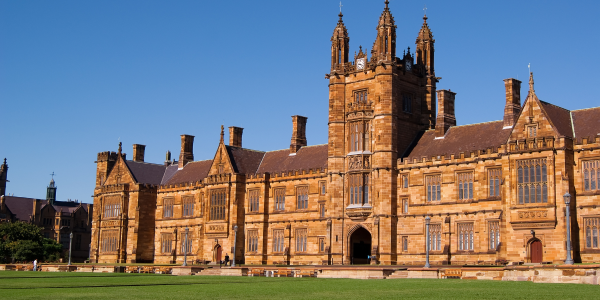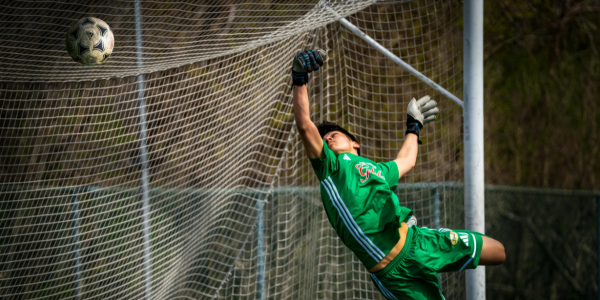For generations, young American soccer players have dreamed of one day stepping onto the pitch at a professional level — hearing the roar of the crowd, feeling the rush of the game, and testing their skills against the very best in the world. Traditionally, the most common path to that dream was through the US college soccer system, balancing competitive play with earning a degree.
And for many, that route still holds appeal. The idea of combining academics and athletics in a familiar environment is reassuring. However, the game is changing — and so are the pathways to professional success.
Over the past decade, a growing number of ambitious young players have taken a different route entirely: training at European private soccer academies. This choice is no longer a niche alternative. It is fast becoming the preferred option for serious athletes with one primary objective: to become a professional footballer.
Among these academies, World Football Schools stands out as one of the best positioned to guide players toward their dreams. With world-class coaching, direct exposure to professional scouts, academic options, and immersion in a football-first culture, World Football Schools offers the kind of developmental environment that the US college system simply can’t replicate.
In this article, we’ll explore why the European private academy model — and specifically World Football Schools — gives aspiring players a sharper competitive edge, greater exposure, and a more direct path to the professional game than the US college route.

When you step into a European soccer academy, you are stepping into an environment shaped entirely by the needs of aspiring professional players. In top academies like World Football Schools, every aspect of the training program is designed to mirror professional club standards.
Where US college coaches often juggle recruitment, team management, academic oversight, and multiple sports seasons, European academies focus exclusively on player development. Their coaches are not part-time mentors — they are full-time football specialists.
At World Football Schools, the staff includes:
UEFA-licensed technical coaches who refine first touch, passing precision, and ball mastery.
Strength and conditioning experts who tailor physical programs for peak performance.
Sports psychologists who build mental resilience under pressure.
Tactical analysts who teach players to read the game like seasoned pros.
This specialization means every training session is sharper, every drill more relevant, and every feedback loop faster.
One of the biggest gaps between US college soccer and the professional game is tactical complexity. Many NCAA programs focus heavily on athleticism and fitness but lag behind in developing a deep, adaptable tactical understanding.
At World Football Schools, tactical training is constant and varied. Players learn:
Multiple formations and how to switch between them mid-game.
Positional play and spatial awareness.
Opponent analysis and match preparation at a professional level.
This isn’t just about running faster or tackling harder — it’s about thinking the game. By the time academy graduates step into professional trials, they can operate seamlessly within the fast, fluid systems of elite clubs.
In much of Europe, football isn’t just a sport — it’s a way of life. When you live and train in this environment, you don’t just play the game — you breathe it.
At World Football Schools, the entire daily schedule revolves around football. Players train multiple times a day, study game footage, work on recovery, and live alongside teammates who share the same ambition. This 24/7 focus creates rapid development that the college model, with its academic interruptions, simply cannot match.
In the US college system, the competitive season is relatively short, with matches limited by NCAA regulations. In European academies, competitive play is year-round.
World Football Schools athletes regularly face:
Youth squads from top English clubs.
Select teams from across Europe.
Trial matches with scouts and coaches in attendance.
This consistent exposure to elite competition is invaluable. It ensures that players are constantly testing themselves against the best — and being seen by the right people.

One of the overlooked benefits of training at a European private academy is the ability to pursue an accredited university degree alongside your soccer development — often in just three years, compared to the typical four-year US college program.
This means:
Lower tuition costs overall, saving thousands of dollars.
Earlier entry into professional football, as players can graduate and go full-time at 21 instead of 22.
A strong educational safety net while still giving football top priority.
World Football Schools partners with educational institutions that allow players to follow academic programs in sports science, business, and other fields, ensuring they leave with both a football résumé and a degree.
To be clear, the US college system isn’t without merit. For many, it offers a balanced lifestyle, the security of a degree, and a chance to continue playing at a good level. But for players whose primary aim is to become a professional, its limitations are significant.
College athletes must balance demanding class schedules with training and matches. While this builds strong time management skills, it also means less time on the pitch. NCAA regulations further restrict training hours and match frequency.
In contrast, at World Football Schools, football is the priority. Academic programs can be arranged around training, not the other way around.
The pace, intensity, and tactical level of NCAA soccer lag behind most professional leagues. Even the best college players face a steep adjustment period when making the jump to pro.
European academies like World Football Schools bridge that gap by replicating professional conditions from day one. Players graduate already familiar with the demands of elite football.
While some college players are drafted or invited to trials, this is not the norm. Most must go through separate showcase events, often without guaranteed professional attention.
World Football Schools integrates players into the professional scouting network as part of their daily experience. Regular trials, guest coaching from former pros, and connections to club recruitment staff mean that opportunity is built into the program.
Training abroad is more than a football decision — it’s a life experience.
Living in Europe exposes players to new cultures, languages, and ways of life. They learn independence, adaptability, and self-reliance — qualities that benefit them both on and off the field.
At World Football Schools, students not only train and compete, but also experience cultural trips, stadium visits, and interactions with players from multiple countries.
Academy life brings together ambitious athletes from around the globe. These friendships often lead to lifelong connections in the sport — from former teammates who become professional colleagues to coaches who open doors to new opportunities.

Not every player will have a 20-year professional career. But graduates from European academies have a strong foundation for future roles in the sport, whether as coaches, analysts, scouts, or administrators. World Football Schools equips players with both the skills and the network to stay in the game for life.
Private academies are an investment — and it’s important to weigh the cost against potential outcomes. While tuition can be significant, the return can be life-changing: a direct route into professional football, higher earning potential, and global career opportunities.
World Football Schools offers flexible program options, with some scholarships and tailored pathways for talented players.
Not all academies are created equal. When evaluating a European soccer academy, consider:
Coaching qualifications.
Success stories of alumni.
Links to professional clubs.
Training facilities and match schedule.
World Football Schools consistently scores highly in all these areas, with alumni progressing into professional environments and coaches holding top-tier UEFA licenses.

Before committing, attend trial sessions where possible. At World Football Schools, trials give prospective players a realistic taste of training intensity, living arrangements, and academy culture.
Among the many European academies, World Football Schools offers a unique blend of:
Elite coaching from UEFA-qualified professionals.
Proven scouting connections to clubs in England and across Europe.
A fully immersive football culture that mirrors professional life.
Three-year degree options that save time and money while allowing an earlier start to a pro career.
A track record of success, with players earning trials, contracts, and full-time academy places.
For US players, this is more than a training program — it’s a launchpad. It’s the bridge between ambition and achievement.

Choosing between the US college route and a European private academy is one of the most important decisions an aspiring footballer will ever make.
If your goal is to balance education and sport, the college system can be rewarding. But if your dream is to play professionally, to test yourself against the best, and to be seen by the right people in the right environment, then World Football Schools and the European academy model offer a far more direct and effective pathway.
The reality is simple: professional football is a global game. To succeed, you need to train where the game is at its most competitive, learn from the best, and immerse yourself fully in the football lifestyle.
World Football Schools is ready to help you unlock your potential, accelerate your development, and step confidently toward your dream career.
Your future starts with a decision. Make it count.
Call today on +44 7874 459315
Want to take your football to the next level?
At World Football Schools, we help young players turn talent into real opportunities. Through our global network of private football academies, you can train full-time with UEFA-qualified coaches while continuing your studies or give the football your full focus on Football Only Short Courses or Summer Football Camps.
Get in touch today and start making your football dreams a reality.
WhatsApp: +44 7874 459315 Email: hello@worldfootballschools.com Online Form